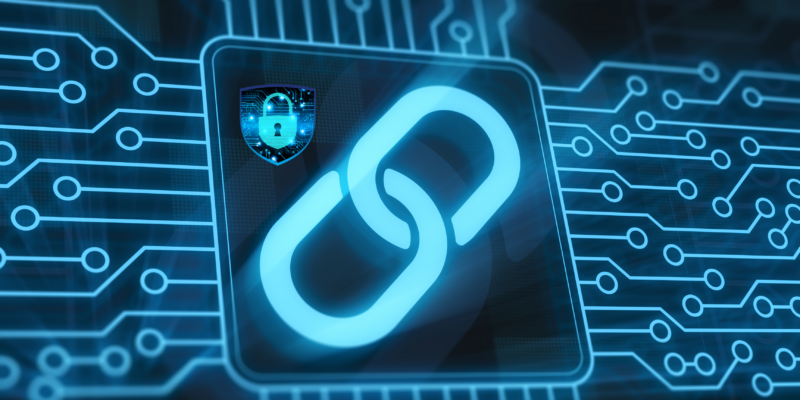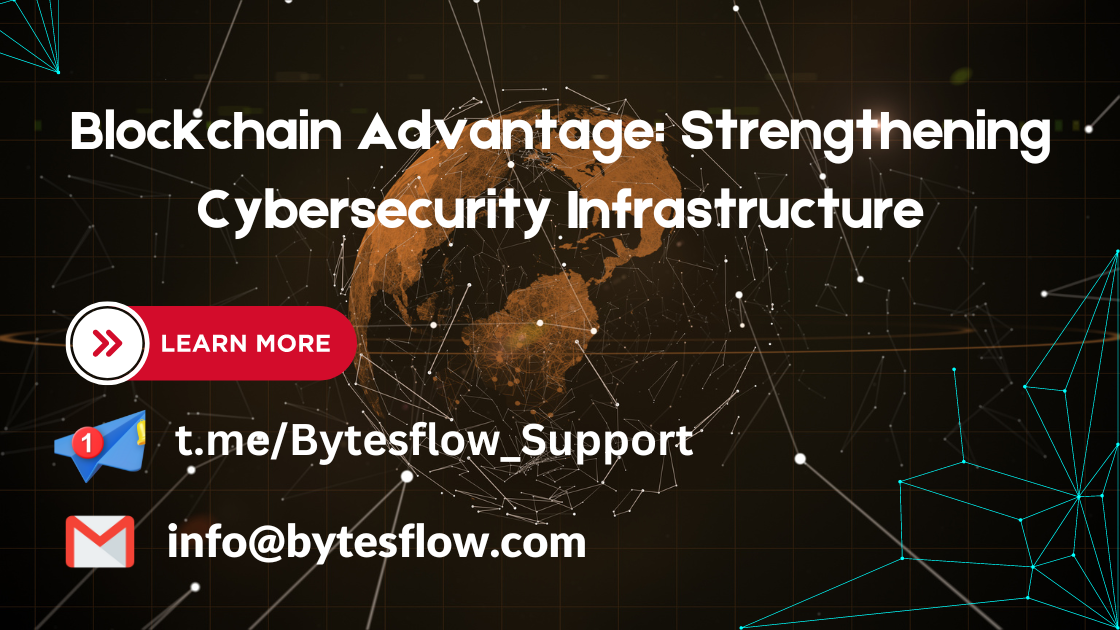In an era where data breaches and cyberattacks are becoming increasingly common, enhancing cybersecurity is a top priority for businesses and governments worldwide. Traditional security measures are often inadequate against sophisticated threats, leading to significant financial and reputational damage. Enter blockchain technology, a revolutionary approach that transforms the landscape of cybersecurity. Let’s explore the role of blockchain in enhancing cybersecurity, the specific benefits that blockchain development offers to your business, and real-world applications that demonstrate its potential.
Understanding Blockchain Technology
Before delving deep into the key element, let’s have a look at what blockchain technology is.
Blockchain technology relies on a decentralized and distributed ledger to securely record transactions across multiple computers, ensuring the data’s security and immutability. Each block in the chain contains a list of transactions and is linked to the previous block through a cryptographic hash, forming a continuous chain of records.
Key features of blockchain that contribute to its security features include:
- Decentralization: No single point of control or failure, reducing the risk of targeted attacks.
- Immutability: Once data is recorded on the blockchain, it cannot be altered or deleted without consensus from the network.
- Transparency: All participants in the network have access to the same data, promoting trust and accountability.
- Cryptography: Advanced cryptographic techniques ensure data integrity and confidentiality.
Role of Blockchain in Enhancing Cybersecurity
1. Data Integrity and Immutability
One of the most significant advantages of blockchain is its ability to ensure data integrity. Once information is added to a blockchain, it is nearly impossible to alter or delete it without the consent of the network majority. This immutability makes it an ideal solution for protecting sensitive data from tampering and unauthorized modifications.
2. Decentralized Security
Traditional cybersecurity relies on centralized systems, which are vulnerable to single points of failure. Blockchain’s decentralized nature distributes data across a network of nodes, making it much harder for hackers to compromise the system. Even if one node is breached, the integrity of the entire network remains intact.
3. Enhanced Authentication and Authorization
Blockchain technology development can improve the authentication processes of your business by eliminating the need for centralized databases, which are often targeted by cybercriminals. By using blockchain for identity management, users can have a secure and tamper-proof digital identity that is difficult to forge. Further, by using smart contracts, authorization rules can be automated and strictly enforced to ensure that only authorized parties can access sensitive information.
4. Secure Transactions and Communication
Blockchain’s cryptographic techniques provide a high level of security for transactions and communications. Every transaction is encrypted and linked to the previous transaction, creating a secure and traceable history. This attribute is highly beneficial for financial institutions and other fields where secure transactions are of utmost importance.
5. Protection Against Distributed Denial of Service (DDoS) Attacks
DDoS attacks overwhelm systems with a flood of malicious traffic, causing disruptions and service outages. Blockchain’s decentralized structure can help reduce the impact of DDoS attacks by distributing the network load across multiple nodes, making it difficult for attackers to target and overload a single point.
Real-World Applications of Blockchain in Enhancing Cybersecurity

1. Supply Chain Security
Businesses are turning to blockchain to improve the security and transparency of their supply chains by keeping a detailed record of all transactions and movements of goods. This helps ensure the legitimacy and trustworthiness of products, while also reducing the likelihood of counterfeiting and fraud.
2. Healthcare Data Protection
Healthcare organizations are adopting blockchain to secure patient data and ensure privacy. Blockchain’s immutability and encryption capabilities make it an ideal solution for protecting sensitive medical records from unauthorized access and breaches.
3. Financial Services
Financial institutions are leveraging blockchain to secure transactions and prevent fraud. Blockchain’s transparent and immutable ledger provides a tamper-proof record of all transactions, making it easier to detect and prevent fraud activities.
4. Government and Public Sector
Governments are considering the adoption of blockchain to secure voting processes, protect citizen data, and ensure the accuracy of public records. Blockchain technology’s transparency and security features foster trust and fight corruption in the public sector.
5. IoT Security
The expansion of IoT devices introduces new cybersecurity hurdles. Blockchain technology can enhance IoT security by providing a decentralized and secure structure for device authentication, data integrity, and secure communication.
Future Prospects of Blockchain in Enhancing Cybersecurity
The future of blockchain in enhancing cybersecurity looks promising as more industries recognize its potential and invest in research and development. Innovations in blockchain technology, such as sharding and off-chain solutions, are likely to address scalability concerns and enhance its applicability in cybersecurity.
Fortifying Digital Defenses: Blockchain in Enhancing Cybersecurity
Blockchain technology has the potential to revolutionize cybersecurity by providing a secure, decentralized, and tamper-proof framework for data protection, authentication, and secure transactions. As cyber threats continue to evolve, the adoption of blockchain can offer a robust defense mechanism, ensuring the integrity and security of critical information systems. Embracing blockchain in cybersecurity strategies will not only reduce risks. But also build trust and resilience in an increasingly digital world.
Let’s get ready to go beyond the borders of blockchain!
Aparna Babukuttan is a content writer at Bytesflow Technologies who writes with passion and emotions. She has a keen interest in exploring the latest technologies and has years of experience in writing for artificial intelligence and Web3 including blockchain, NFT, metaverse, and cryptocurrency. Beyond Blockchain, Aparna also lends her expertise to crafting captivating narratives for on-demand food delivery businesses.

